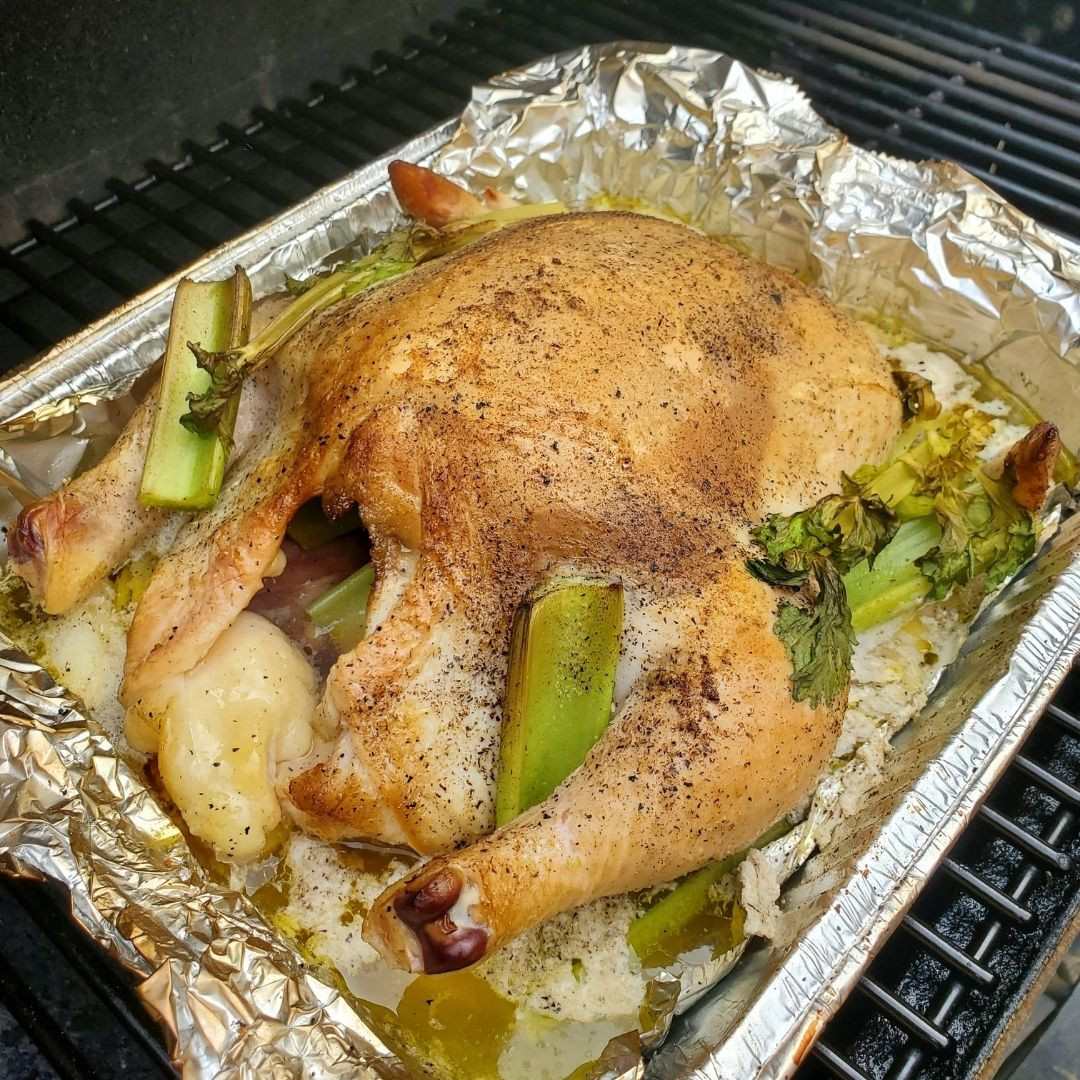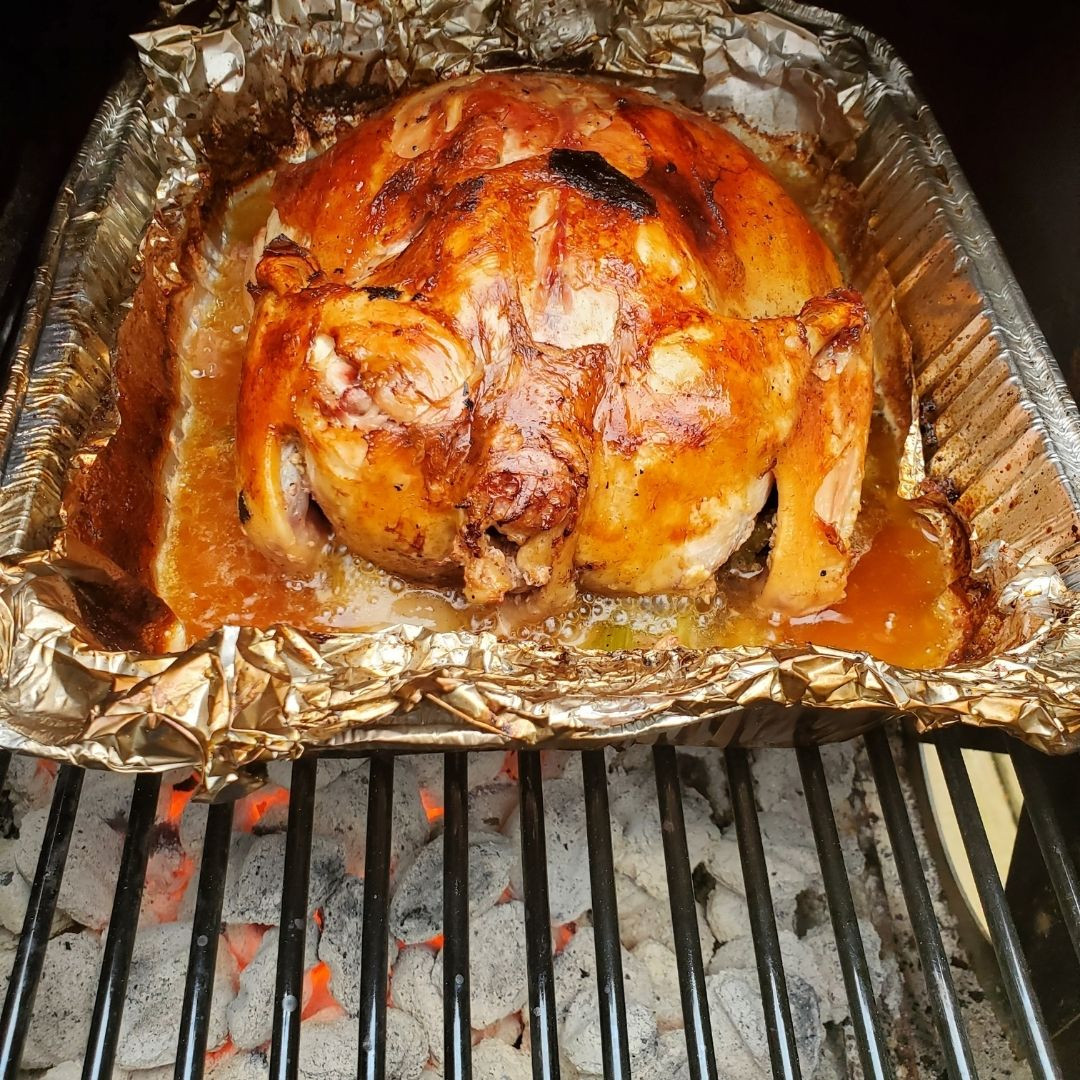Slow Smoked Country Chicken
posted on
June 1, 2021

Today our guest contributor is actually part of the team here at The Maker’s Meadow. Darlene McKinney, our IT Specialist and Social Media Guru, shares how to prepare and grill chicken in an easy way that feeds the whole family.
While most of us have probably grilled chicken breasts, legs or thighs, have you ever tried slow-grilling a Whole Chicken? Talk about taking tender, juicy, mouth-watering chicken to a whole new level!
Add this recipe to your list of meals for the week or weekend! You never know until you try… Slow-Smoked Country Chicken may become your family’s favorite!
Slow Smoked Country Chicken
Ingredients
1 Whole chicken
2 Stalks of celery
2 Tablespoons olive oil
1 Lemon
1 Yellow onion
Salt & pepper
Garlic powder & onion powder
1/2 Stick of butter
1 Cup of water
1 Deep aluminum pan
2 12oz. beers for basting (optional- can substitute chicken broth)
Cook time: 2 1/2 Hours (depending on how done you want it) Chicken should be 165 degrees before considered done.
Directions:
Preheat grill. We used hickory charcoal and slow smoked the chicken. If you use a smoker grill, keep the smoker temperature at 200-250. However, you can cook this chicken on a regular charcoal grill over coals. Cook time may vary.
Rinse the chicken off under water. Pat dry. Place in aluminum pan.
Cut the 1/2 stick of butter into small slice squares to stick under the skin of the chicken. Place a pat or 2 of butter inside the chicken.
Rub the outside of the chicken with the olive oil (helps the skin turn a golden brown) sprinkle generously with salt & pepper, garlic & onion powder.
Cut the celery into inch chunks, stuff inside the chicken. Place a few pieces on the outside of the chicken in the pan.
Cut the lemon into circles, stuff inside the chicken. Place a few pieces on the outside of the chicken in the pan.
Cut the lemon into wedges, stuff inside the chicken. Place a few pieces on the outside of the chicken in the pan.
Place 1 cup of water into the pan.
Chicken should cook slow for about 2 1/2 hours, basting often with the beer and with its own juices. Keep about a 1 cup of water or more in bottom for moisture and basting. Cover with aluminum foil for the first hour to help it cook and steam in the broth.
Using 2 forks turn the chicken over about 1/2 way through cook time.
The chicken was smoked in a smoker to the side of the coals. At the end we placed the chicken directly over the coals to finish the process for about 20 minutes.
The result is a juicy, golden-brown chicken.
Enjoy!
Additional tips: Add other veggies such as leaks, carrots, cabbage, and potatoes. This chicken is great as the main feature. Add sides like corn on the cob, salad, coleslaw, or baked beans for a delicious meal. family’s favorite!


Thank you Darlene for your contribution!
Do you have a special way of preparing meat from The Maker’s Meadow that YOUR FAMILY just loves? Send your family favorite recipe to: themakersmeadowteam@gmail.com and we may include your recipe in an upcoming blog. If your family enjoys it, chances are, others will too!



